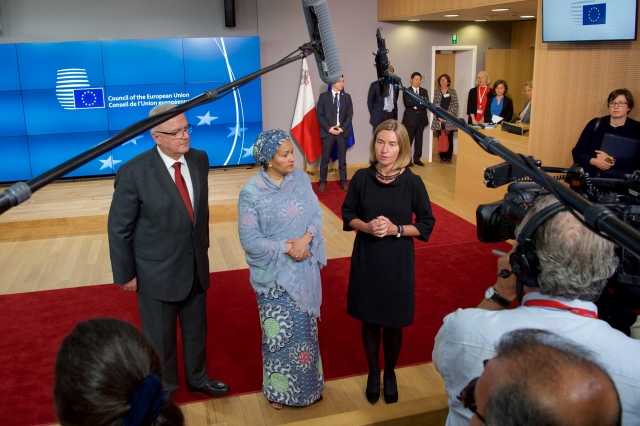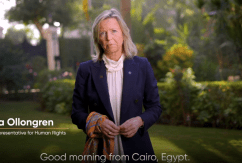EU adopts new consensus for development and recognises need for coordination between humanitarian and development actions

EU ministers in charge of development, gathering in Brussels today, adopted a new European consensus on development. This joint statement by the three institutions (Parliament, Council and Commission) sets out a new framework for development cooperation for the EU and its member states.
“The new European consensus for development makes the EU even stronger to tackle today’s challenges and promote sustainable development and eradication of poverty all over the world. Investing in sustainable development is investing in our common security and prosperity”, said Federica Mogherini, EU High Representative for foreign affairs and security policy.
The consensus is important given the crucial role of the EU in the area of development cooperation. The EU remains the world’s largest development aid donor, providing more than half of assistance worldwide. The overarching goal is the eradication of poverty, by promoting good governance, human and economic development and tackling universal issues such as fighting hunger and preserving the world’s natural resources.
The European consensus for development is the EU’s response to the UN 2030 agenda for sustainable development. It sets out the main principles which will guide the approach of the EU and the member states to cooperation with developing countries over the next 15 years, as well as a strategy for reaching the sustainable development goals (SDGs). In line with the global strategy on the EU’s foreign and security policy, the consensus will also help achieve the priorities of the EU’s external policy. The European Parliament is expected to endorse the consensus on 31 May.
In the context of its discussion on addressing ongoing humanitarian crises in Africa, Yemen and Syria, the Council also adopted conclusions addressing the need to coordinate between humanitarian and development actions. The conclusions recognise the connections between sustainable development, humanitarian action and peace and security. In particular, they stress the need to coordinate humanitarian and development actions so as to address the root causes of vulnerability, fragility and conflict while simultaneously meeting humanitarian needs and strengthening resilience.
Read more
Full text of the new European consensus on development
Council conclusions on operationalising the humanitarian-development nexus





























 Syria
Syria 




